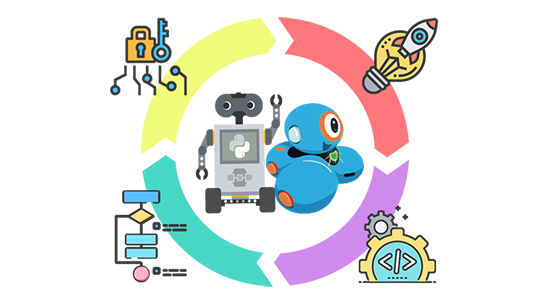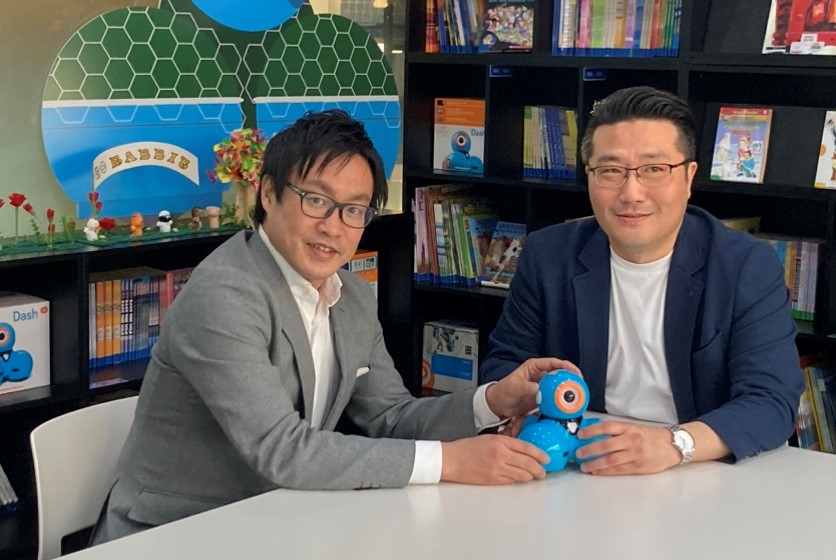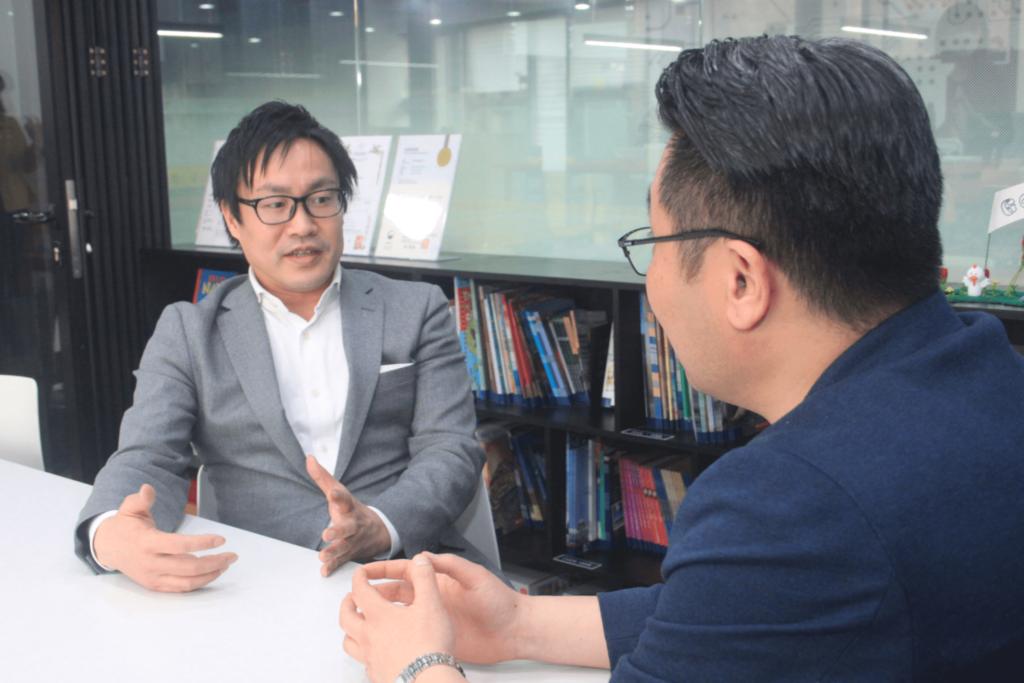The Education Group (EDCG) × FCE Education Interview: Wonder Code's potential vision
In May 2021, FCE Education embarked on a
new challenge. They launched "Wonder Code," an English programming
learning program in Japan, using the award-winning robot, based from American
Silicon Valley, "Dash" from Wonder Workshop. "Wonder Code"
was developed through a partnership between Wonder Workshop in America and Wonder
Code Limited, the education group in Hong Kong. FCE Education partnered with
Wonder Code Limited to start the expansion of "Wonder Code" in Japan.
Over the next two years, "Wonder
Code" partnered with many institutes, and the number of classrooms
expanded to over 80. To celebrate the 2nd anniversary of “Wonder
Code” in Japan, Zac Kwon, the CEO of “Wonder Code” and The Education Group
(EDCG) from South Korea, and Onoue Yukiharu, the President of FCE Education,
had a discussion of future coding education in Japan.
Zac Kwon, CEO of The Education Group (EDCG), South
Korea He manages around 15 classrooms including
international kindergartens, extracurricular English schools, and English programming
education businesses. He established EDCG in 2013 and started the "Wonder
Code" project in 2018. Onoue Yukiharu, President of FCE Education, Co., Ltd. Engaged in businesses that foster children's
"initiative" based on the philosophy of "Embrace Challenges,
Create the Future." Started the expansion of "Wonder Code" in
Japan as a business providing English and programming education for children in
2021.
"The Beginning of 'Wonder Code' and
Its Current Status." Zac: The development of the "Wonder
Code" curriculum started in 2018. We encountered the Dash robot developed
by Wonder Workshop in Silicon Valley, and we felt it would be suitable as a
learning tool for kindergarten and elementary school children. As our expertise
lies in English education, we saw an opportunity to create a model where
children could learn coding in English using this robot, which would further
benefit their future. So, as a team, we worked on its development. In
collaboration with Scholastic, a major American children's book publisher, we
developed an English curriculum that incorporated storytelling. Through our
partnership with Wonder Workshop, we combined English and coding, creating a
curriculum for teachers to teach children. That became "Wonder Code." Onoue: The "Wonder Code" program
has many elements that captivate children's interest. When I first observed the
lessons in South Korea, I was impressed to see the children engrossed and
having fun while learning. It strongly motivated me to bring "Wonder
Code" to Japan. Zac: Our first encounter was in 2019, just
before the COVID-19 pandemic. We were introduced to FCE Education by a related
company within our group, and I came to Japan to present "Wonder
Code" to Mr. Onoue. Subsequently, Mr. Onoue and the team visited South
Korea, touring labs and schools, and that marked the beginning of everything.
We found that Japanese children were looking for a program where they could
learn both English and coding, which led to the expansion of "Wonder
Code" in Japan.
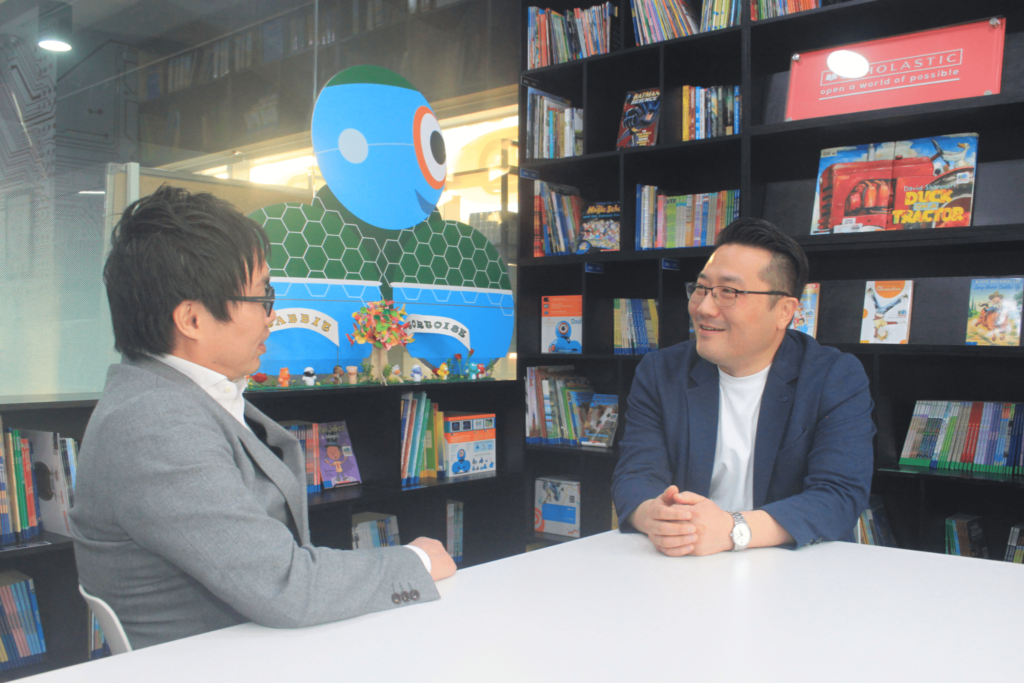
Onoue: It's already been three years! As
for the reason for seeking such a program, it lies in the education issue Japan
faces with English education. Despite studying English for about 10 years in
school, many students still struggle to speak the language fluently. This is
the reality. The conventional English education focuses heavily on knowledge
input and lacks emphasis on education for speaking and using English as a tool.
I believe this is the problem. To use English as a tool, it is essential to
make the learning enjoyable; otherwise, children's engagement won't last. I was
considering how to create opportunities where children could have a positive
emotional connection with English and enjoy engaging with it. At that time, when I saw Korean children
using Dash robots to learn English as a tool and having fun while doing so, I
was amazed. Seeing how enjoyable the educational material was, I thought there
must be a demand for it in Japan. That's why we decided to launch "Wonder
Code" in Japan.
Japan and South Korea... The Current Status of English and
Programming Education.
Onoue: In terms of the English education business in Japan, the number of
English conversation schools is increasing every year, and we feel that differentiation
is crucial to stand out. On the other hand, the market for programming
education is experiencing rapid growth, with approximately 12,000 classrooms*
nationwide as of 2022. However, when it comes to "English-taught
programming classes," they represent only about 3%* of the total. It is
still a small percentage, and we believe this could be a differentiating
factor. The essential
aspect for both English and programming classes is whether children can acquire
practical skills that they can use in society. In the case of programming, it
means developing both programming thinking and coding skills. For English, it
means genuinely becoming fluent speakers. In the age of globalization and
digital transformation, offering such practical learning opportunities will be
in high demand.
Zac: In South
Korea, after the 1988 Seoul Olympics, the importance of English was emphasized,
leading to a significant push for English education. Now, I see a similar trend
emerging for the necessity of learning coding skills in the 2020s. The coding
boom of the 2020s is similar to the English education boom of the 1990s, and I
feel that a large majority of Koreans believe that everyone should have at
least a basic understanding of coding. Onoue: I see. The sense of urgency seems to be similar in Korea and Japan.
In Japan, the inclusion of programming in the national curriculum guidelines
has gradually increased the awareness of the need for coding basics.
Additionally, Japan is considered to have the lowest English proficiency level
in Asia. In such a situation, I believe that the best way for children to
develop practical English skills is by being in an English-speaking
environment. Because there
are more opportunities for input and output using English. Thus, I believe it
is essential to create an educational culture where children "learn
through using English" rather than just "learning English." When considering
what to learn in English, we found that there is potential demand in Japan, and
programming, which offers both enjoyable learning elements and is in a rapidly
growing market, seemed to be the perfect fit. We believe that
the curriculum "Wonder Code," which teaches programming in English,
is an optimal content that leads to the development of 21st-century skills for
Japanese children. *1 "2022
Programming Education Market Size Survey," Survey Period: December 2021 to
May 2022 (conducted by GMO Media, Inc.). *2 Research by FCE Education, Co., Ltd . 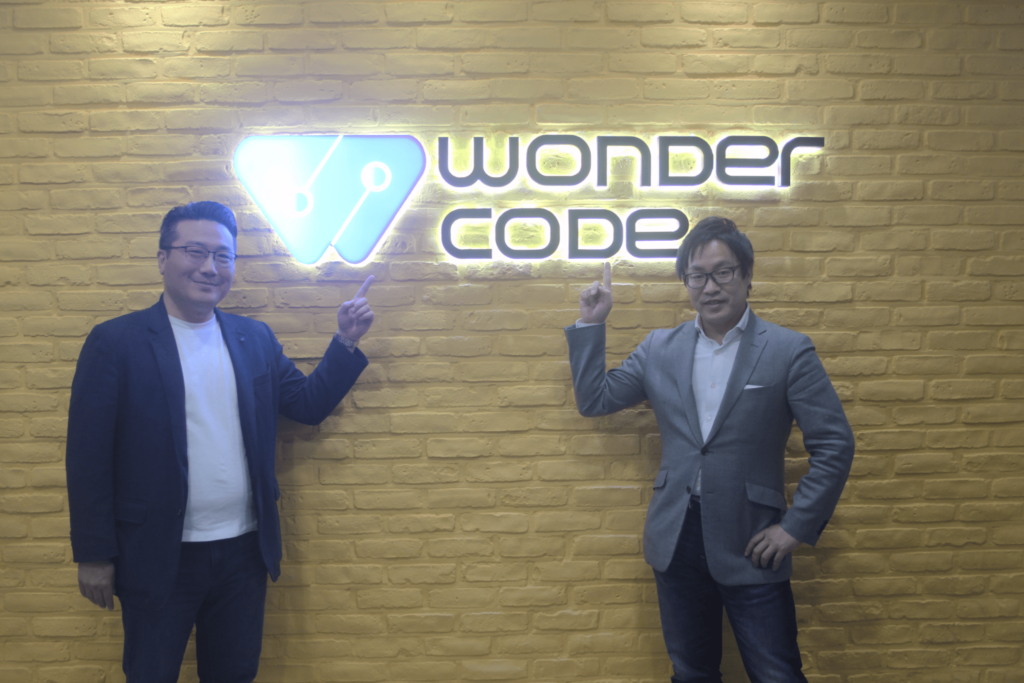
The value of “Wonder Code” curriculum.
Zac: "Wonder
Code" encompasses all the essential elements for children to learn the
fundamentals of coding. Many people may think that coding is specialized and
difficult, but that's not the case. The curriculum of "Wonder Code"
proves otherwise. Firstly, it ensures
that children who are new to coding understand what coding is and learn the
basic concepts in a straightforward manner. Secondly, it
makes learning enjoyable. To keep students engaged in the long run, it is
essential to infuse the curriculum with fun. In the past, we were often forced
to memorize knowledge-based learning, but nowadays, experiential learning and
enjoying the process of learning are more emphasized. Thirdly, the
curriculum is story-based. Students learn English while having fun and simultaneously
acquire the concept of coding. Onoue: These three aspects are what make "Wonder Code" so
attractive. We are also implementing it directly, and we are amazed by how much
it fosters the growth and learning attitude of children. Zac: "Wonder Code" nurtures children to become leaders of the 21st
century. During lessons, students learn through stories from Scholastic, the
largest American publisher, and acquire coding logic using innovative robots
and applications developed by Wonder Workshop in Silicon Valley. Additionally,
we provide a curriculum that is both enjoyable for the students and easy for
teachers to teach. Moreover, we receive support from FCE Education, a company
with expertise in the education sector. Through this collaboration, we firmly
believe that children will have a great opportunity to become outstanding
individuals. Onoue: Thank you very much. It has been two years since
"Wonder Code" was launched in Japan, and it has expanded to more than
80 classrooms nationwide, reaching various locations from major cities to rural
areas. We have received
numerous positive feedback from children who have attended the lessons, such as
"I enjoy attending class every week," "I can demonstrate my
strengths," "I have improved teamwork skills," "I see the
children gaining more confidence," and "They speak English at home
now." I am delighted
to be able to deliver this kind of education to children, and I genuinely feel
that launching "Wonder Code" in Japan was a great decision. I want to
continue fostering individuals who will thrive actively in the global society
through "Wonder Code." Zac-san, let's
continue to have a successful partnership for the sake of Japanese and global
children!
Zac: Absolutely!
Let's keep working together!
| 